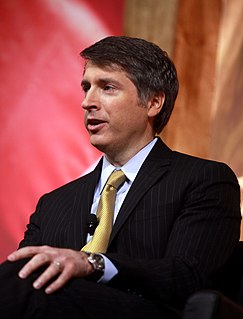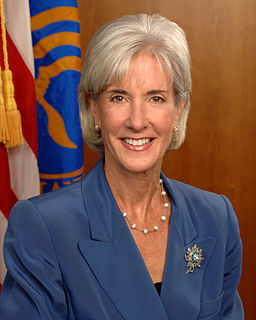A Quote by George W. Bush
So many people commute in this country by car long enough distances to really cut into their income, their real income, that they would change their vote based on gas prices.
Related Quotes
You know, the elites always want to shame the poor - right? - and everyone else. I mean, the fact is, this economy is based on 70 percent of the people driving consumer demand. If people do not purchase goods and services, this economy will grind to recession. And that is why, if you are going to do a tax cut, it ought to really be aimed at low-income and middle-income people.
The horn of dilemma of energy politics is what really drives concern about this energy in this country, at the gut level for most people, is high gas prices. And if you really want to fight global warming and try to reduce our carbon emissions, the cleanest, easiest, most rational way to do it would to make the price of gas even higher through very stiff gas prices.
Recalling that a good chunk of the 47 percent who don't pay income taxes are Romney supporters - especially of course seniors (who might well 'believe they are entitled to heath care,' a position Romney agrees with), as well as many lower-income Americans (including men and women serving in the military) who think conservative policies are better for the country even if they're not getting a tax cut under the Romney plan. So Romney seems to have contempt not just for the Democrats who oppose him, but for tens of millions who intend to vote for him.
The lower income individuals, under any Republican proposal, at least that I have seen, are real losers in the framework because there is not enough subsidy, not enough assistance, for them to realistically participate in the market. Particularly if you halt or rollback the Medicaid expansion, which is for the lowest income workers.
No politician can praise unemployment or inflation, and there is no way of combining high employment with stable prices that does not involve some control of income and prices. Otherwise the struggle for more consumption and more income to sustain it-a struggle that modern corporations, modern unions and modern democracy all facilitate and encourage-will drive up prices. Only heavy unemployment will then temper this upward thrust. Not many wish to confront the truth that the modern economy gives a choice only between inflation, unemployment, or controls.
It makes no difference to a widow with her savings in a 5 percent passbook account whether she pays 100 percent income tax on her interest income during a period of zero inflation or pays no income tax during years of 5 percent inflation. Either way, she is 'taxed' in a manner that leaves her no real income whatsoever. Any money she spends comes right out of capital. She would find outrageous a 100 percent income tax but doesn't seem to notice that 5 percent inflation is the economic equivalent.
There are several problems with the ACA's reliance on means-based inclusion criteria and mandatory participation in exchanges - the complexity of the exchange mechanism, and the potential for income-based subsidies to become a disincentive to earn if insurance rates escalate for those beyond the income threshold.

































